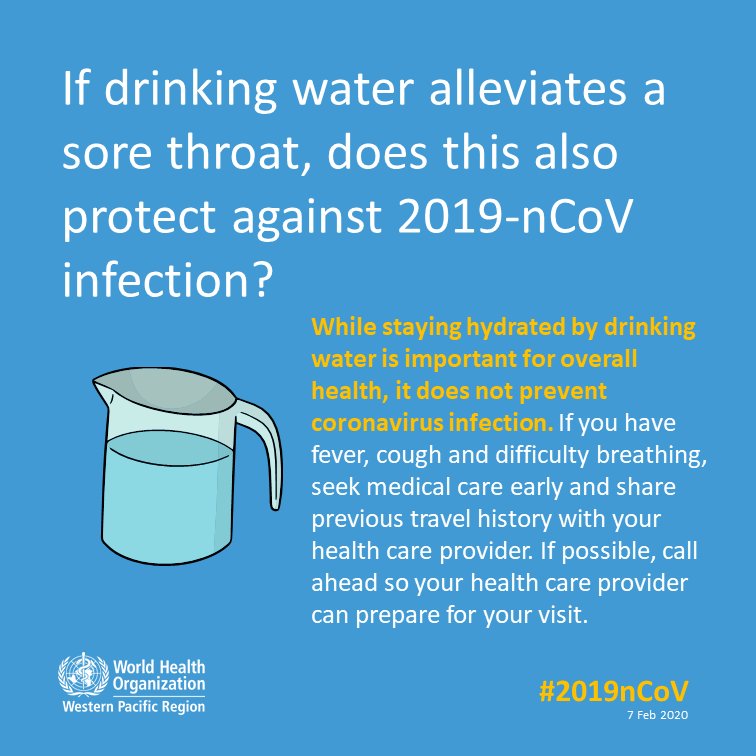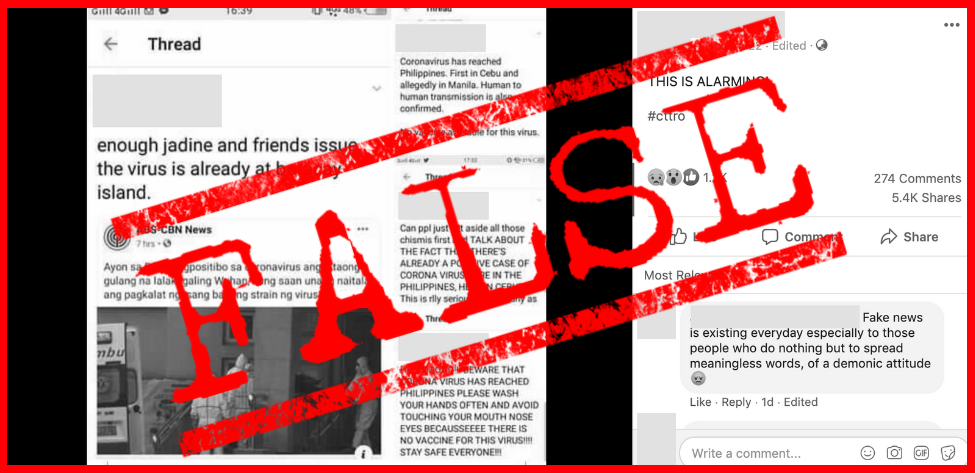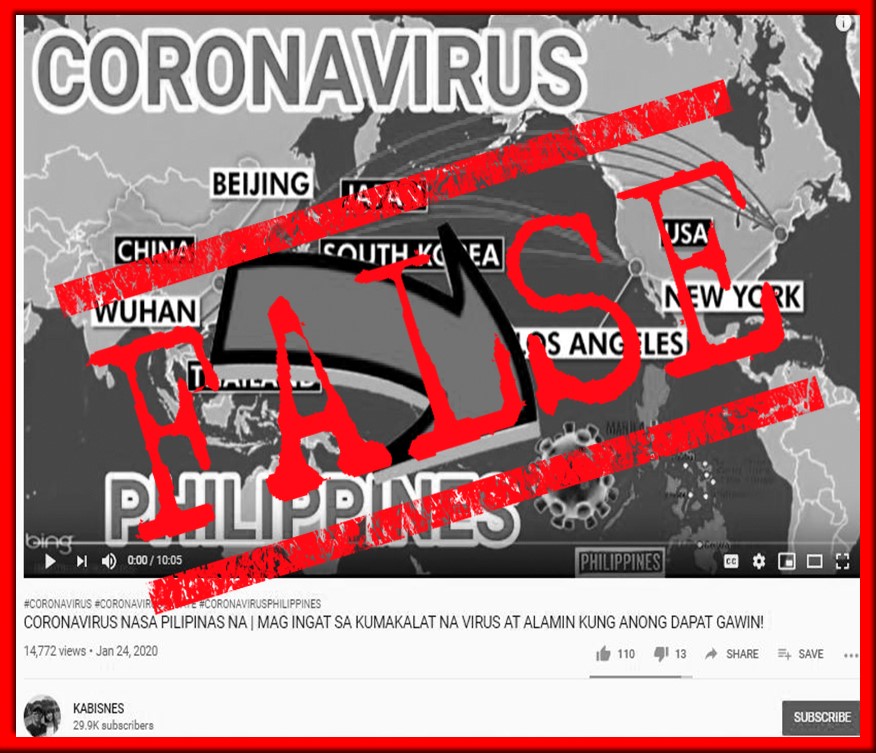Health Secretary Francisco Duque III inaccurately recommended that drinking lots of water and keeping one’s throat moist can be a protection against the new coronavirus.
STATEMENT
In a Jan. 30 press conference during the Department of Health (DOH)’s tri-weekly updates on 2019-nCoV, Duque advised the public to take protective measures, such as practicing good hand hygiene and cough etiquette.
He then said:
“I strongly recommend as your doctor, that you have to drink a lot of water. Make sure that your throat is moist so that the virus doesn’t attach to it and eventually get sore.”
Source: Department of Health (Philippines) Facebook, HAPPENING NOW: Press Briefing on the novel coronavirus (2019-nCoV), Jan. 30, 2020, watch from 16:03 to 16:43
FACT
“Drinking water does not prevent coronavirus infection,” the World Health Organization (WHO) said in an email to VERA Files, adding, however, that staying hydrated is important in overall health.

Singapore’s Ministry of Health, which was also tagged to a similar false information, said “keeping one’s throat moist does not prevent influenza,” as reported by the Straits Times.
Dr. Edrie Alcanzare, a public health specialist, was quoted in a Flipscience.ph report as saying there is “no proof that a dry throat is especially susceptible to coronaviruses, particularly 2019-nCoV.”
While sore throat is a symptom associated with the 2019-nCoV, WHO said in a Q&A; report that “laboratory tests are required to confirm if a person carries 2019-nCoV.”
“People with 2019-nCoV infection, the flu, or a cold typically develop respiratory symptoms such as fever, cough and runny nose. Even though many symptoms are alike, they are caused by different viruses,” WHO added.
Coronavirus got its name from the appearance of spikes or crowns — “corona” in Latin — on the virus’ surface. (See VERA FILES FACT SHEET: Novel coronavirus: Six things you need to know) The spikes, called glycoproteins, are what the virus use to attach to its host cell, according to a fact sheet by Morgridge Institute for Research.
Peter Lin, a Canada-based family physician, said in CBC News that the 2019-nCoV has spikes similar to the Severe Acute Respiratory Syndrome (SARS) coronavirus, allowing it to attach to the cells in the lung and replicating itself to spread more virus within the body.
WHO released on Jan. 28 clinical interim guidelines for patients with severe acute respiratory infection who are suspected to have the 2019-nCoV.
The 2019-nCoV’s human to human transmission “mainly” occurs through respiratory droplets, which are “produced when an infected person coughs or sneezes,” according to the United States Centers for Disease Control and Prevention (CDC).
It is still “unclear,” however, if a person can get infected by touching a surface or object that has virus on it and then touching their own mouth, nose, or eyes, the CDC added. WHO, in its Q&A; on coronaviruses, said there is still no conclusive period on how long the virus survives on surfaces, although it can last a few hours.
Following the pronouncement of Shanghai’s Civil Affairs Bureau head that 2019-nCoV can be spread through aerosol transmission — droplets carried on air when people sneeze or cough — WHO has clarified that it “still needs to see the data and understand how the transmission has been assessed.”
Other myths debunked by the WHO can be found here.
Both CDC and WHO list the following preventive actions to reduce risk of transmission:
- Frequent proper hand-washing and using alcohol-based sanitizer if soap and water are not available;
- Avoiding close contact with sick people, especially those with respiratory infections;
- Practicing cough etiquette (maintain distance, cover mouth when one coughs and sneezes, properly dispose tissue or clothing, wash hands);
- Avoiding touching eyes, nose, mouth; and
- Practicing food safety.
The 2019-nCoV disease is now named Corona Virus Disease or COVID-19. The name does not refer to any geographical location, animal, or individual to “prevent the use of other names that can be inaccurate or stigmatizing,” giving a “standard format to use for any future coronavirus outbreaks,” WHO said.
As of Feb. 13, total confirmed cases of COVID-19 globally have ballooned to 60,335, with 1,369 deaths and 6,074 patients who have recovered, based on Johns Hopkins monitoring database.






